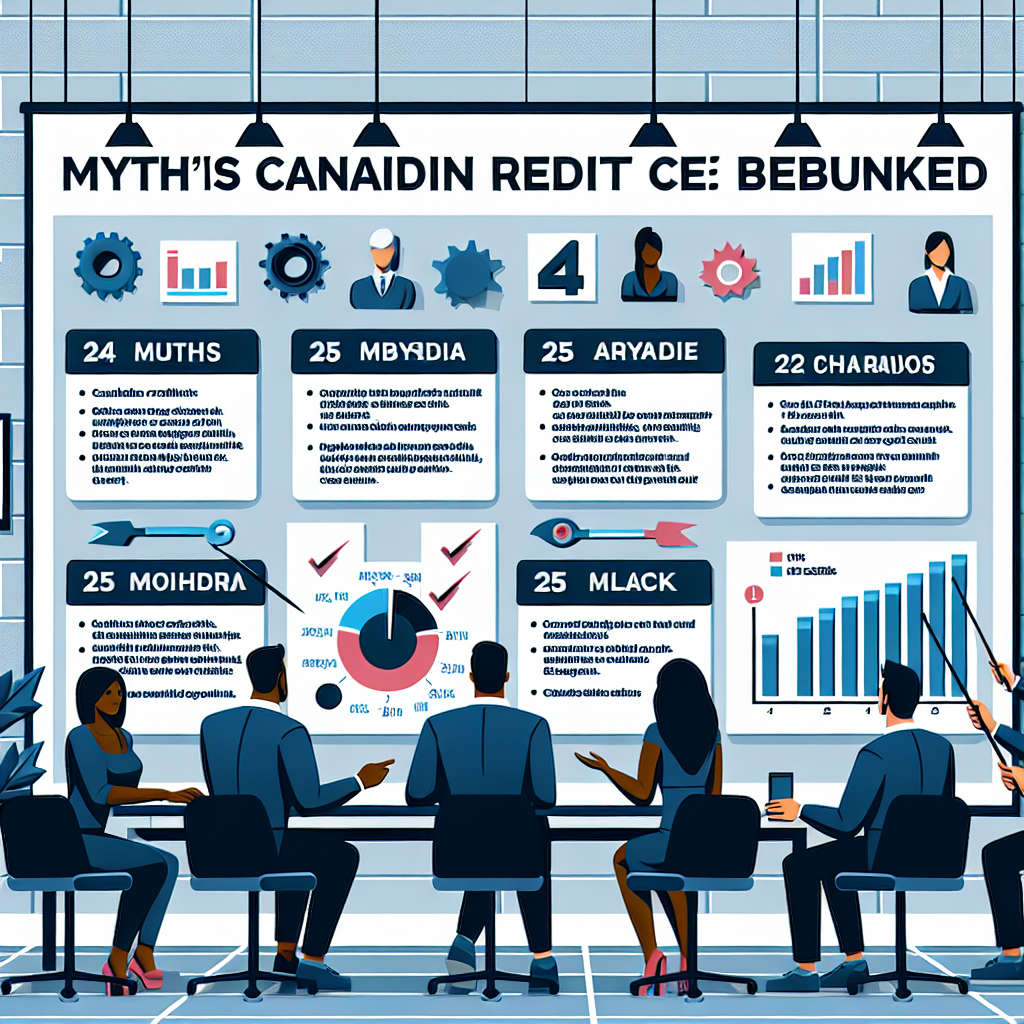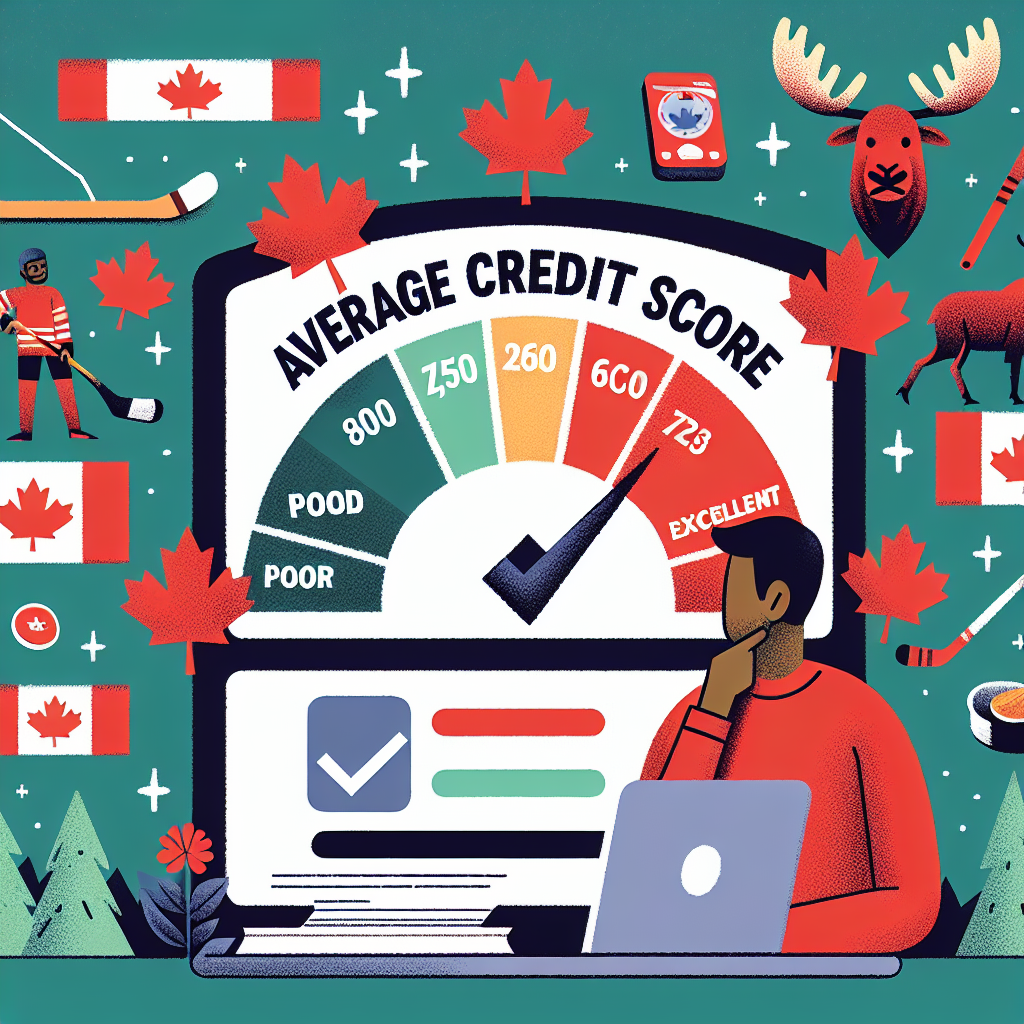===INTRO:===
Navigating the landscape of Canadian credit scores can feel like traversing a maze filled with misconceptions and myths. In 2024, many individuals still operate under the shadow of outdated beliefs that can severely impact their financial health. Understanding the real factors that influence credit scores is crucial in today’s economy, where even a slight dip in your score can lead to higher interest rates or less favorable lending terms. By debunking Canadian credit score myths, we empower individuals to take control of their financial futures, making informed decisions that can lead to better opportunities for loans, mortgages, and credit cards.
Unraveling the Truth: Common Myths About Canadian Credit Scores
One prevalent myth is that checking your own credit score will harm it. Contrary to this belief, checking your own credit score is categorized as a "soft inquiry," which does not affect your credit rating. Regularly monitoring your credit score is not only a responsible financial practice, but it also allows you to catch any errors or fraudulent activities that could negatively impact your score. In 2024, leveraging free credit report services can provide insights needed to maintain or improve your credit health without any adverse effects.
Another common fallacy is the belief that carrying a balance on your credit card is beneficial for your credit score. Many Canadians assume that showing regular activity on their cards and keeping a balance will demonstrate credit utilization to lenders. However, the reality is that maximizing your credit utilization ratio—keeping it below 30%—is essential for a healthy score. Paying off balances in full each month not only ensures you avoid interest charges but also reflects positively on your creditworthiness.
A third misconception revolves around the idea that closing old credit accounts is beneficial. While it may seem logical to close accounts you no longer use, this action can actually harm your credit score. Length of credit history accounts for a significant portion of your score, and closing long-held accounts can shorten your credit history. In 2024, it’s important to keep these old accounts open, especially if they have no annual fees, as they contribute positively to your credit profile.
Understanding Your Credit: Facts vs. Fiction for 2024
Understanding the nuanced factors that contribute to your credit score can make a substantial difference in achieving your financial goals. A major misconception is that credit scores are solely determined by how much debt you owe. In reality, your score is influenced by several factors, including payment history, length of credit history, types of credit accounts, and new credit inquiries. In 2024, a holistic view of these components is critical for anyone looking to enhance their credit health.
Another widely held belief is that a high income automatically leads to a good credit score. While financial stability is important, lenders focus on how you manage your credit rather than your income level. If you have a consistent record of on-time payments and low credit utilization, your score can remain strong, regardless of income fluctuations. This underscores a vital lesson for 2024: credit management is about behavior, not just financial capability.
Finally, there’s a persistent myth that only people who apply for credit frequently can improve their score. While applying for new credit does lead to hard inquiries that can momentarily lower your score, responsible credit behavior over time will outweigh this effect. In fact, maintaining a diverse range of credit types—like a mix of revolving credit and installment loans—can enhance your score. Understanding the balance between managing existing credit and responsibly seeking new credit opportunities is essential for Canadians in 2024.
===OUTRO:===
As we navigate the intricate world of Canadian credit scores in 2024, it’s essential to arm ourselves with accurate information and debunk the myths that cloud our understanding. By recognizing the truth about credit inquiries, account management, and the factors that affect our scores, we can make informed decisions that lead to better financial outcomes. Don’t let misinformation dictate your financial future. Instead, engage in proactive credit monitoring and practice responsible credit habits to unlock your potential and secure the financial opportunities you deserve. Dive deeper into your credit education today, and take charge of your financial destiny!
Navigating Credit Report Corrections in Canada: 2024 GuideExploring 2024 Options for Canadian Credit Card Debt ConsolidationExploring 2024 Canadian Credit Card Balance Transfer DealsRelevant LinkRelevant LinkRelevant LinkNavigating Credit Report Corrections in Canada: 2024 GuideExploring 2024 Options for Canadian Credit Card Debt ConsolidationExploring 2024 Canadian Credit Card Balance Transfer DealsRelevant LinkRelevant LinkRelevant LinkNavigating Payday Loans in Canada: A Bad Credit DilemmaExploring Alberta’s Online Payday Loan Landscape: Risks and RealitiesNavigating the Payday Loan Landscape in Victoria, BCRelevant LinkRelevant LinkRelevant Link



